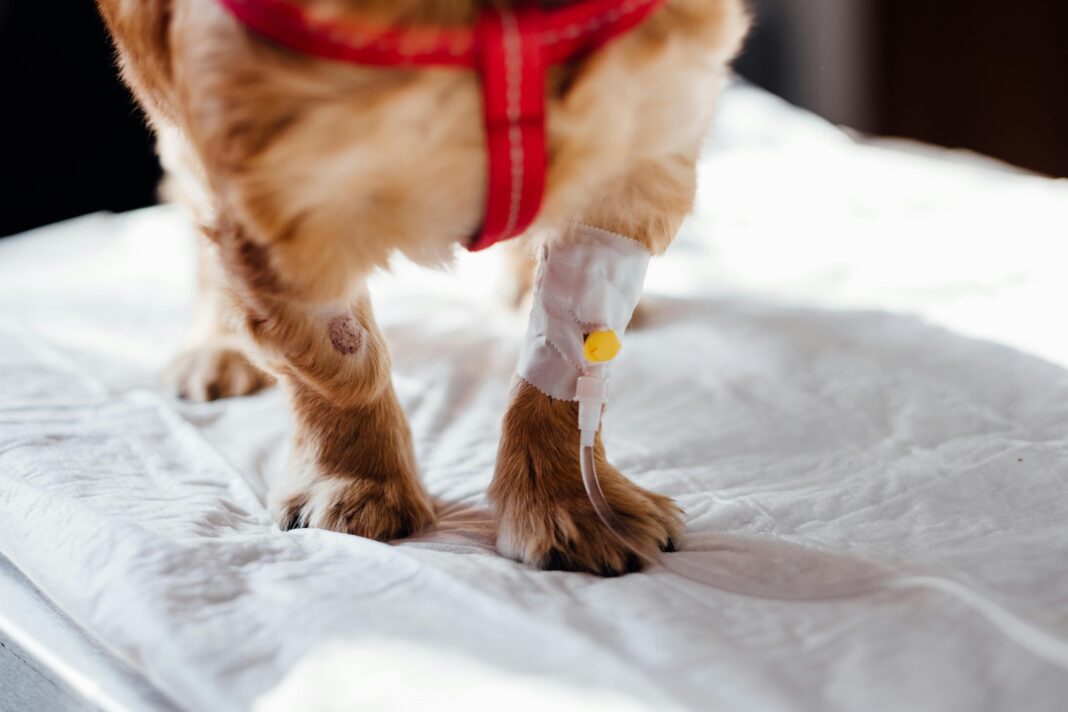As pet owners, our furry companions hold a special place in our hearts. The thought of them facing serious health challenges, such as cancer, can be daunting. However, revolutionary advances in veterinary oncology are providing hope and new options for pet cancer care. Let’s explore the causes, symptoms, diagnosis, treatment, and prevention of cancer in pets, helping you become an informed advocate for your pet’s health.
Understanding Cancer in Pets
What Causes Cancer in Pets?
Cancer in pets can arise from a variety of factors, including genetic predisposition, environmental influences, and lifestyle choices. Just like humans, pets can inherit certain genes that make them more susceptible to various types of cancer. Environmental toxins, such as pesticides or secondhand smoke, and obesity can also play significant roles. It’s essential to be aware of any breed-specific health issues. For example, Golden Retrievers are more prone to lymphoma, while Boxers often develop mast cell tumors.
Common Types of Cancer in Pets
There are several types of cancer that can affect pets, with some of the most common being:
-
- Lymphoma: A cancer of the lymphatic system, often seen in dogs and cats.
-
- Osteosarcoma: A painful bone cancer that typically affects larger dog breeds.
-
- Mast Cell Tumors: These skin tumors can be aggressive and require careful evaluation.
-
- Soft Tissue Sarcomas: Tumors that arise from muscles, fat, or fibrous tissues.
Familiarizing yourself with these types can help you recognize potential issues early.
Recognizing Symptoms of Cancer
Early Warning Signs
Understanding the symptoms of cancer can lead to prompt diagnosis and better outcomes. Some common signs to watch for include:
-
- Unexplained weight loss: If your pet is losing weight without changes to diet or exercise, it’s a red flag.
-
- Lumps or bumps: Any new growths or changes in existing ones should be evaluated by your veterinarian.
-
- Chronic coughing or difficulty breathing: These could indicate respiratory issues related to lung tumors.
-
- Changes in appetite or behavior: If your pet seems lethargic, has a decreased appetite, or is hiding more than usual, it may be cause for concern.
Always consult your veterinarian if you notice any of these symptoms; early detection can save lives.
Diagnosing Cancer in Pets
Veterinary Examinations and Testing
When it comes to diagnosis, your veterinarian will conduct a thorough physical exam and may recommend several diagnostic tests, such as:
-
- Blood tests: To check for abnormalities in white and red blood cells, platelet counts, and organ function.
-
- X-rays or ultrasounds: To visualize internal organs and check for tumors.
-
- Biopsies: The definitive way to diagnose cancer, where a small piece of tissue is removed and examined.
Utilizing these tools allows for an accurate diagnosis, paving the way for effective treatment options.
Treatment Options for Pet Cancer
Revolutionary Approaches in Veterinary Oncology
Veterinary oncology has seen groundbreaking advancements in recent years. Here are some of the key treatment options for pet cancer:
-
- Surgery: This remains one of the most common treatment options, especially for localized tumors that can be safely removed.
-
- Chemotherapy: Often used to treat various types of cancer, it can effectively shrink tumors and improve life quality, especially for systemic diseases like lymphoma.
-
- Radiation therapy: This can target specific tumors, minimizing damage to surrounding tissues. It’s particularly effective for tumors that are difficult to remove surgically.
-
- Immunotherapy: Harnessing the power of the immune system, this approach is becoming more prominent. Vaccines and monoclonal antibodies help target cancer cells specifically.
Tailoring a Treatment Plan
Every pet is unique, and treatment plans should be customized based on the type of cancer, its stage, and your pet’s overall health. Engaging with a veterinary oncologist for specialized care can often provide the best outcomes.
Preventing Cancer in Pets
Proactive Health Management
While not all cancers are preventable, certain lifestyle choices can significantly reduce your pet’s risk:
-
- Regular veterinary check-ups: Early detection is key; regular visits can help catch potential issues before they develop into serious conditions.
-
- Healthy diet and weight management: A balanced diet and maintaining an ideal weight reduce the risk of obesity-related cancers.
-
- Limit exposure to toxins: Reduce your pet’s exposure to harmful chemicals and ensure a clean living environment.
-
- Physical activity: Keeping your pet active not only maintains a healthy weight but also strengthens their immune system.
Vaccinations
Keeping your pet’s vaccinations up to date can also be vital in preventing certain cancers, like lymphoma in certain breeds. Discuss vaccination protocols with your veterinarian to ensure your pet receives the necessary immunizations.
By understanding these aspects of veterinary oncology and actively participating in your pet’s health care, you can make informed decisions that will benefit your furry friend. Together, we can navigate the complexities of pet cancer care, armed with hope and knowledge.





